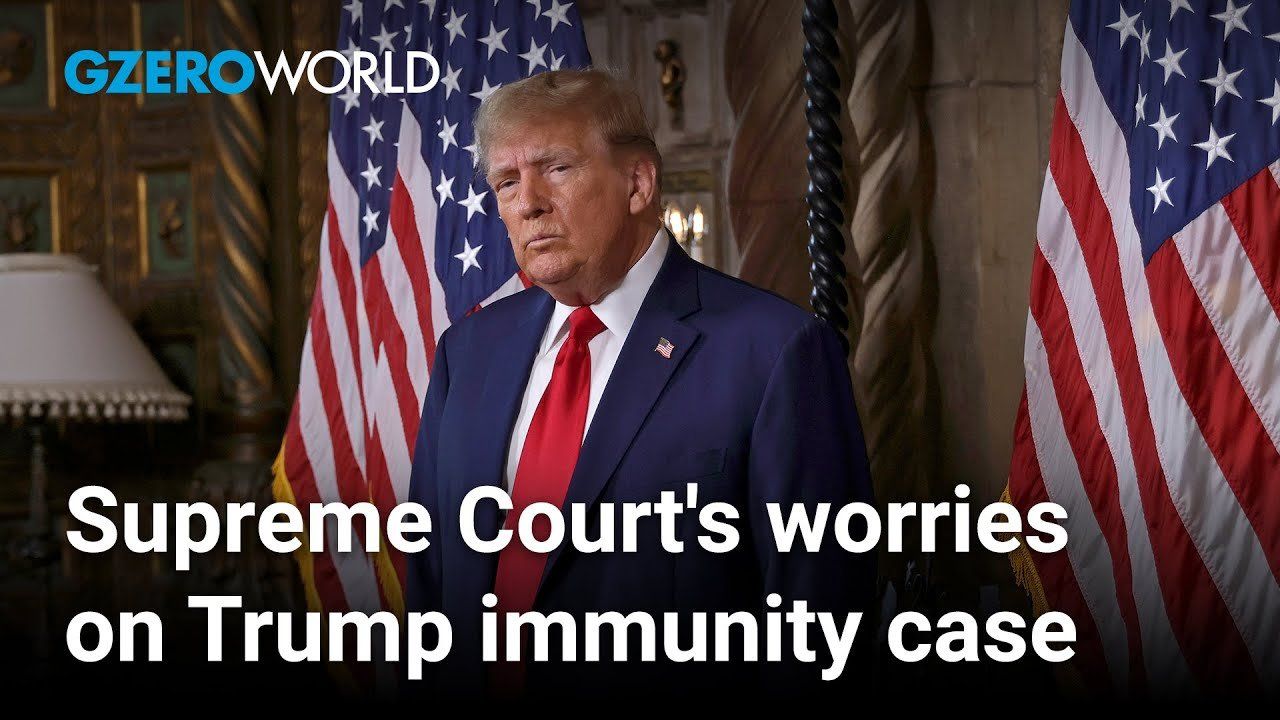GZERO World Clips
The US Supreme Court’s “upside-down” logic in Trump immunity case

The US Supreme Court’s “upside-down” logic in Trump immunity case

2024 is certain to be a historic year for the US Supreme Court: In June, SCOTUS will issue rulings on former president Donald Trump’s immunity claims in charges brought by Special Counsel Jack Smith involving Trump’s attempts to overturn the 2020 election. Emily Bazelon joins Ian Bremmer on GZERO World to unpack the legal arguments at the heart of the case and what caught SCOTUS experts off-guard during oral arguments.
Like in the 2000 Bush v. Gore case that ultimately handed the election win to George W. Bush, Court watchers had expected the justices to issue a narrow ruling in the Trump case. But during arguments, the conservative justices asked questions that seemed more interested in raising hypotheticals about whether limiting the scope of immunity might restrict a president’s power too much. With Trump again on the ballot in 2024, the stakes could not be higher. Will the justices make a limited ruling or wade into the politics of the US presidential election with, as Justice Gorsuch put it, “a ruling for the ages”?
Somewhere in the Donbas region, Ukrainian soldier Artem Bondarenko says he hasn’t slept through the night in months as he defends Eastern Ukraine.
In the latest episode of Vladimir Putin and Xi Jinping's hit wellness podcast This Authoritarian Life, we learn how positive communication patterns can break negative cycles in our relationships -- especially our relationships with Iran, Syria, Venezuela, and Cuba. #PUPPETREGIME
Israel indirectly warned Lebanon that it would strike its northern neighbor hard if the Iran-backed militia group Hezbollah gets involved in any future US-Iran conflict, two Lebanese officials told Reuters.